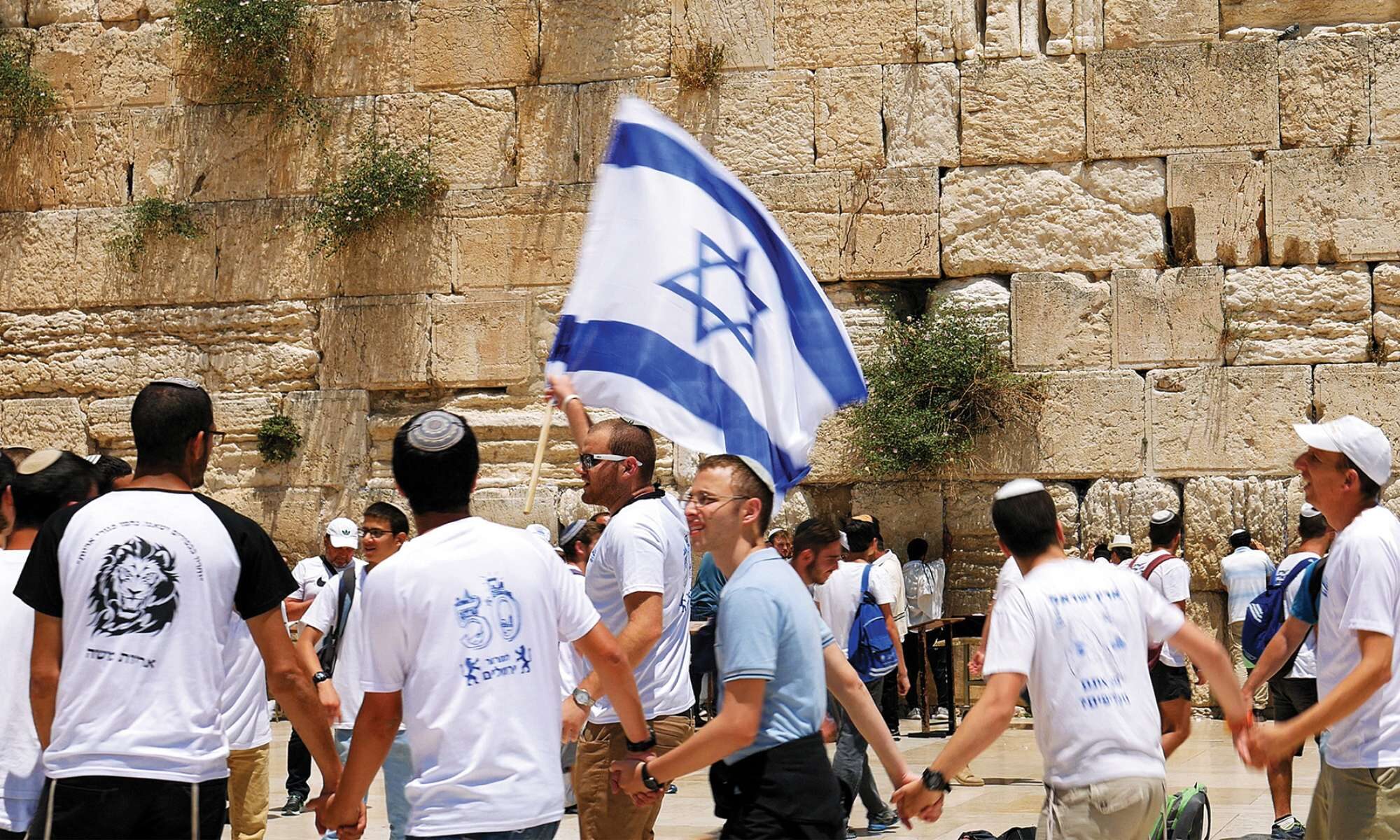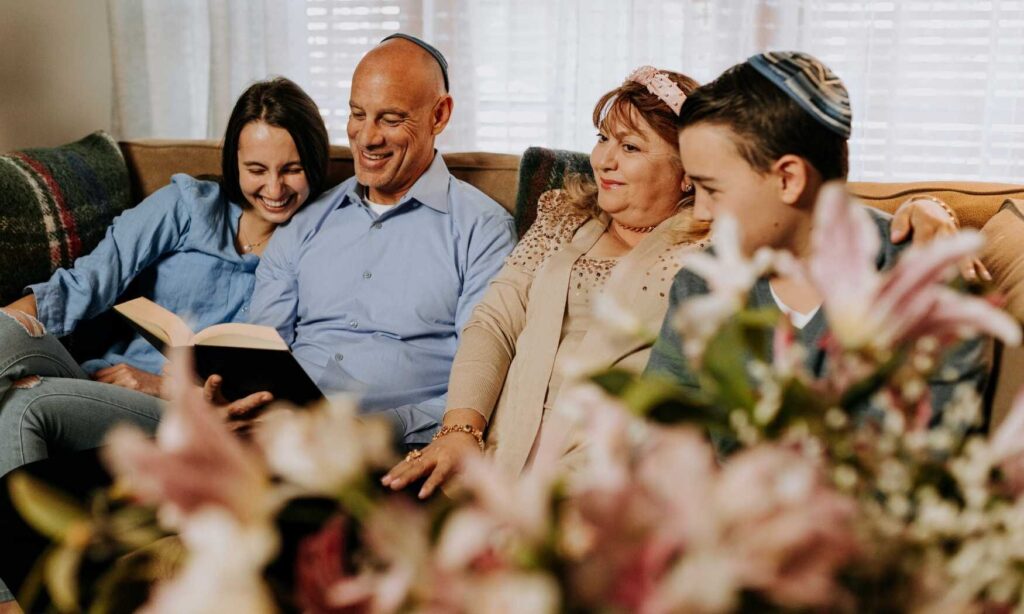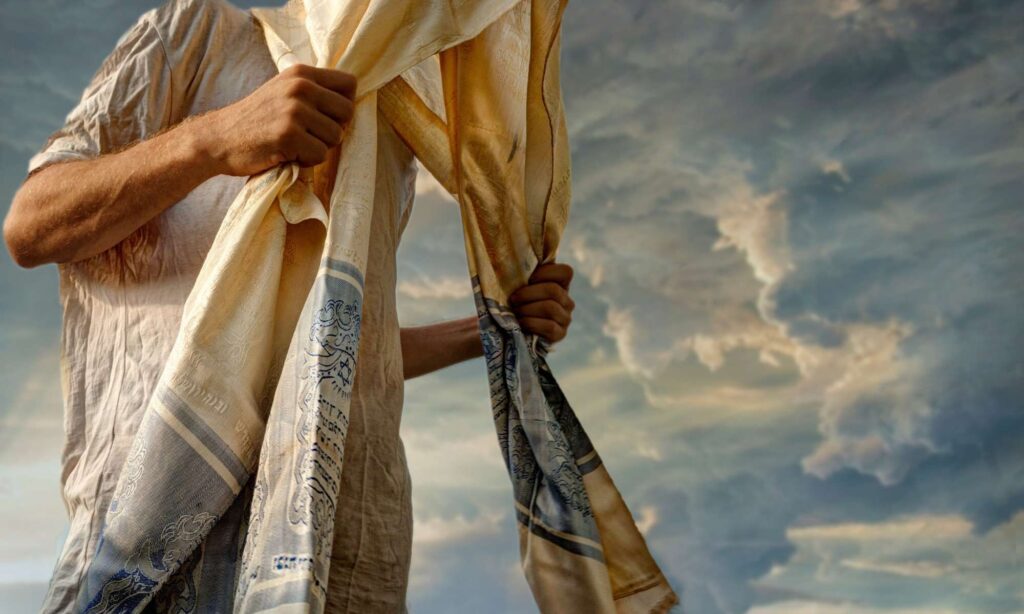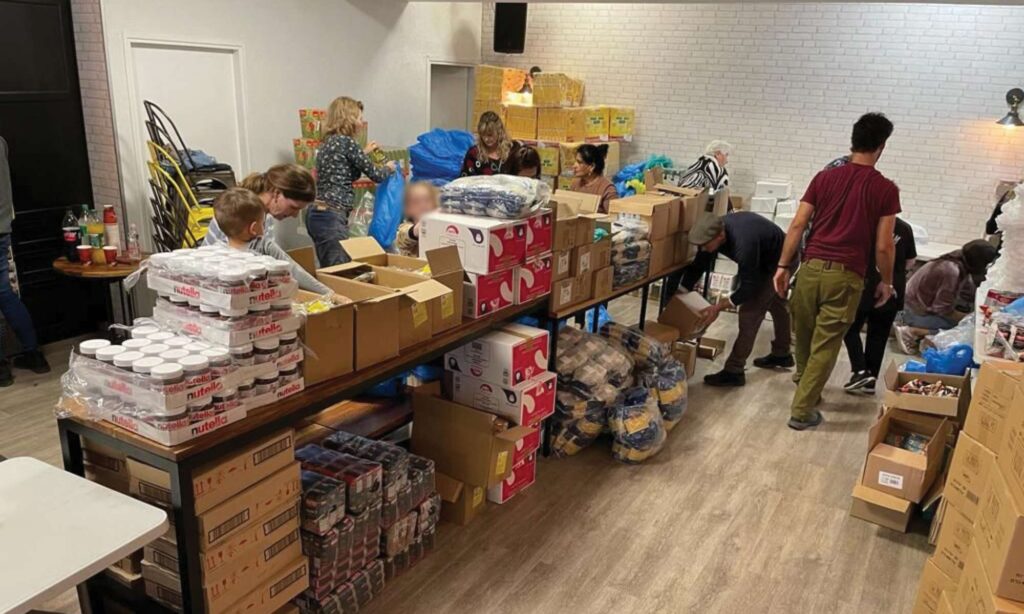Passover: Holding On to Hope

Dear friend in the Messiah,
There is just something about Passover that brings hope to the Jewish soul. Maybe it is because the entire Passover service looks forward to a greater day of redemption.
Throughout the Passover Seder (ritual meal), we are reminded of that dramatic moment when God, through Moses, commanded each Israelite family in Egypt to take an unblemished lamb, slaughter the animal, and apply its blood to the doorpost of their home. According to Exodus 12:1–13, those who obeyed the Lord and smeared the blood on their doorposts would be spared from the Lord slaying their firstborn sons.
The blood shall be a sign for you on the houses where you live; and when I see the blood I will pass over you, and no plague will befall you to destroy you when I strike the land of Egypt. (Exodus 12:13)
During today’s Passover meal, we raise the shank bone of a lamb as a symbol of the slain lamb. Jewish people throughout the ages acknowledge this historic act of redemption and look forward to an even greater day and more robust culmination of this prophetic pattern.

Passover is a celebration of hope in the God of Abraham, Isaac, and Jacob who will never allow His chosen people to be destroyed. The Passover points us forward and annually reminds us of the God who parted the sea and led the Jewish people through forty years of wilderness wanderings.
Today, we also reflect upon a modern miracle—that this same God, after centuries of dispersion, has been bringing the children of Israel back to the Promised Land. He will not allow His chosen people to remain separated from the Land of Israel (Genesis 15:18–21) as He is a promise-keeping God who spoke through the prophet Jeremiah:
Thus says the Lord, who gives the sun for light by day and the fixed order of the moon and the stars for light by night, who stirs up the sea so that its waves roar; The Lord of hosts is His name: “If this fixed order departs from before Me,” declares the Lord, “then the offspring of Israel also will cease from being a nation before Me forever.” (Jeremiah 31:35–36)
The Jewish people have hope for the future because of the faithfulness of God!
“Hatikvah”: The Anthem of Hope
The hope of the Jewish people is reflected in the lyrics of Israel’s national anthem, “Hatikvah”:
As long as deep in the heart,
The soul of a Jew yearns,
And forward to the east.
To Zion, an eye looks
Our hope will not be lost.
The hope of two thousand years
To be a free nation in our land,
The land of Zion and Jerusalem
“Hatikvah” began its life as a nine-stanza Hebrew poem entitled “Tikvatenu” (“Our Hope”). Its author was a nineteenth-century Hebrew poet, Naftali Herz Imber (1856–1909), who was from eastern Europe. Inspired by the early Zionist movement, Imber wrote the poem in 1878 while still living in Europe.
Imber settled in Israel in 1882 when it was part of the Ottoman Empire. He worked as personal secretary and Hebrew tutor to Sir Laurence Oliphant (1829–1888), a British author, politician, world traveler, and Christian Zionist. Oliphant even launched various efforts to encourage Jewish resettlement in the historical Land of Israel.
Imber dedicated “Tikvatenu” to Oliphant. The poem became a song and was embraced by many early Jewish pioneers to Israel before the start of the modern Zionist movement in 1897.[1]
The anthem reminds us that hope has always been central to the Jewish story.

What is Hope?
Hope, or tikvah in Hebrew, is more than a mere wish; it is a confident expectation tied to the promises of God, similar to its description in the New Testament (Hebrews 6:18–19). Tikvah carries rich meanings, including expectation, longing, and trust. Hope is more than a feeling; it is a lifeline. It is derived from a root word meaning “to bind together,” much like a rope that connects us to something secure.[2]
The same word appears in Joshua 2:18, where the scarlet rope (tikvah) hanging from Rahab’s window symbolized the hope of deliverance. Just as that rope represented salvation for Rahab and her family, hope connects us to God’s promises and secures our future.
Imagine that rope—God holds one end, and we hold the other. Life may pull us into pits of despair or storms of uncertainty, but this rope keeps us tethered to God’s faithfulness. We need to hold on to hope and remain fastened to God’s fidelity and His promises to the Jewish people.
Our Glorious Hope
The prophet Isaiah describes this hope for a peace-filled world in chapter two of his prophetic book:
And they will hammer their swords into plowshares and their spears into pruning hooks. Nation will not lift up sword against nation, and never again will they learn war. Come, house of Jacob, and let us walk in the light of the Lord. (Isaiah 2:4b–5)
Our hopes for peace and a world without war and pain is anchored to this glorious promise—a future where peace and justice reign under God’s rule through the greater Son of David, Jesus the Messiah (1 John 3:2–3).
Hope for Tomorrow in Israel Today
This cherished hope was yet again tested for the Jewish people on October 7, 2023, and continues to today.
It is heartbreaking to see Israeli families suffering from a lack of hope. Even if peace is somehow made with Hamas, Hezbollah, and other jihadist groups—and even if the threat from Iran is tempered—it is still a great challenge for families to enjoy any sense of normalcy after going through what Israel has endured for the past eighteen months.
Yet, we do see some sparkles of light through the ministry of Your Mission to the Jewish People in Israel today.
A couple of months ago, I met three new Israeli believers who came to faith within the last nine months, and we have an ongoing discipleship ministry to each of them. I met them at our Friday night monthly Sabbath outreach dinner at our current rented center in Tel Aviv!
We also launched a Facebook campaign called Psalms of Hope that has led to more than 4,000 Israelis downloading our modern Hebrew version of the Psalms. It has been exciting to see God working in this way.
More than 150,000 new immigrants entered Israel these last few years. Many of them speak either Russian or Ukrainian as their first language, and we continue to have the opportunity to present the good news to nearly 1,000 of these precious and hurting new Israelis. We provide practical and spiritual help, assist them in buying needed appliances, and other essentials for their new homes. We accompany them to state and medical institutions as many of our staff speak both Russian and Hebrew. In general, we play a crucial role in their integration into Israeli society. We organize Sabbath meals and Jewish holiday celebrations, family retreats, kids’ classes, practical seminars, Bible studies, and more.

We blessed more than 2,000 soldiers around Israel by providing personal hygiene products, flashlights, chargers, and other items. We organized barbecues with concerts on military bases for hundreds of soldiers. These are excellent opportunities to share our faith and demonstrate our commitment to supporting all members of Israeli society, including our brave soldiers. We work closely with the believing soldiers as well.
We also continue to assist evacuated families and Holocaust survivors from the north and south of Israel—especially in towns near the borders with Gaza and southern Lebanon—by providing practical and spiritual help and by organizing concerts and events.
God’s work in Israel today gives us hope for tomorrow.
Holding On to Hope
Hope is our lifeline, securing us to the promises of God. Like the scarlet rope in Rahab’s window, it signifies deliverance and a future filled with peace and joy. As we cling to this hope, we find comfort, direction, and the strength to live godly lives. Let us hold firmly to the rope of hope, knowing that God is faithful to fulfill every promise.
Now may the God of hope fill you with all joy and peace in believing, so that you will abound in hope by the power of the Holy Spirit. (Romans 15:13)
Thank You
I want to thank you for your prayers and generous support. Please pray especially for our Passover outreach campaign, which is now up and running in the United States, Israel, and some other countries with large Jewish populations. For this campaign, we are holding special Passover outreach events and reaching thousands through social media and new videos we produced for children and adults.
We dedicated $300,000 to the Passover outreach campaign. Would you prayerfully consider investing in this evangelistic outreach?
We also provide extra financial assistance for staff who are having trouble raising their support. In addition, we are increasing our media budgets as digital communication is a great way to touch the lives of Jewish people.
Thank you again for your support and generosity during this Passover season.
Your brother,
Mitch
The Lamb has risen!
[1] Erin Parfet, “Hatikvah,” Shalom Learning Center, May 31, 2024, https://shalomlc.org/dance-and-song/hatikvah.
[2] William Lee Holladay and Ludwig Köhler, A Concise Hebrew and Aramaic Lexicon of the Old Testament: Based upon the Lexical Work of Ludwig Koehler and Walter Baumgartner, (Leiden: Brill, 2000), 394.
- Amount
- Complete Donation
Your gift of $50 once will help us reach Jewish people with the Gospel.